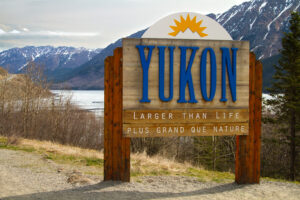Yukon Premier goes to the polls, capitalizing on successful vaccination campaign

Yukon Premier Sandy Silver dissolved the Yukon Legislative Assembly today and sent Yukoners to the polls early, with eight months left in his five-year term. Yukoners will vote Monday, April 12.
Silver, Canada’s second-longest-serving premier, was widely expected to call an early election. Thanks to an aggressive federal strategy to see most Northerners vaccinated by the Spring, Yukoners aged 18 and over have access to vaccines at a time when provinces in the south are struggling to vaccinate their most vulnerable citizens. The optimism that the campaign has created in voters is an attractive opportunity for the incumbent premier to leverage. He now joins the premiers of British Columbia, Saskatchewan, New Brunswick, and Newfoundland and Labrador in going to the polls in the middle of the pandemic.
Several factors trend in Premier Silver’s favour. The Territory is one of the only jurisdictions whose economy grew in 2020, bolstered by a strong mining sector and increased government spending – even as the tourism economy collapsed from COVID-19. From a pandemic perspective, Yukon also did relatively well, seeing only 72 COVID-19 cases and one death (on par per capita with the Atlantic provinces).
Silver has also boasted a strong record of changing the narrative on the relationship between First Nations and the territorial government and bringing certainty back to the mining industry after years of legal challenges over land use planning and the duty to consult. The Yukon Liberals can also take credit for the transformation of Yukon College into Yukon University – Canada’s first North of 60, as well as a suite of economic diversification initiatives, such as lower small business taxes, improving the Territory’s fiber optic connectivity, paving the airport runway in Dawson City, and launching a new green economy strategy. Finally, in his last budget, tabled on March 4, Silver, who is also the Territory’s Minister of Finance, committed to universal, affordable childcare, providing Yukoners up to $700 per month per child registered daycare. That budget had not yet been approved by the time the election was called.
However, there is still cause for concern for the incumbent Liberals.
Silver’s polling numbers remain tied with the Yukon Party Leader, Currie Dixon, and NDP Leader, Kate White, despite an objectively strong response to COVID, according to recent polling by Leger, first reported in the Whitehorse Star on February 24. It is worth noting though that very little polling is traditionally done in Yukon between elections (the last public poll was in December 2017), so there is no telling whether this is an anomaly or a wider trend.
Additionally, though Silver enters the election with ten incumbents seeking re-election (compared to Dixon’s five and White’s one), he suffered a very high-profile defection on Monday when one of his rural MLAs, Don Hutton, quit caucus to sit as an Independent and endorsed NDP Leader Kate White for re-election. Hutton, who had already announced he would not seek re-election, did so claiming that Silver had failed to show leadership to address the rise in alcohol and drug misuse in his riding of Mayo—Tatchun.
Ultimately, this election is likely to be fought over the post-pandemic future, with Yukoners returning their attention to long-standing challenges of affordable housing, economic diversification (including a green economy), and childcare. While the opposition parties will find fault with the Liberals’ handling of the pandemic, their leaders will still have to convince Yukoners on April 12 that their vision for the future is the better choice.